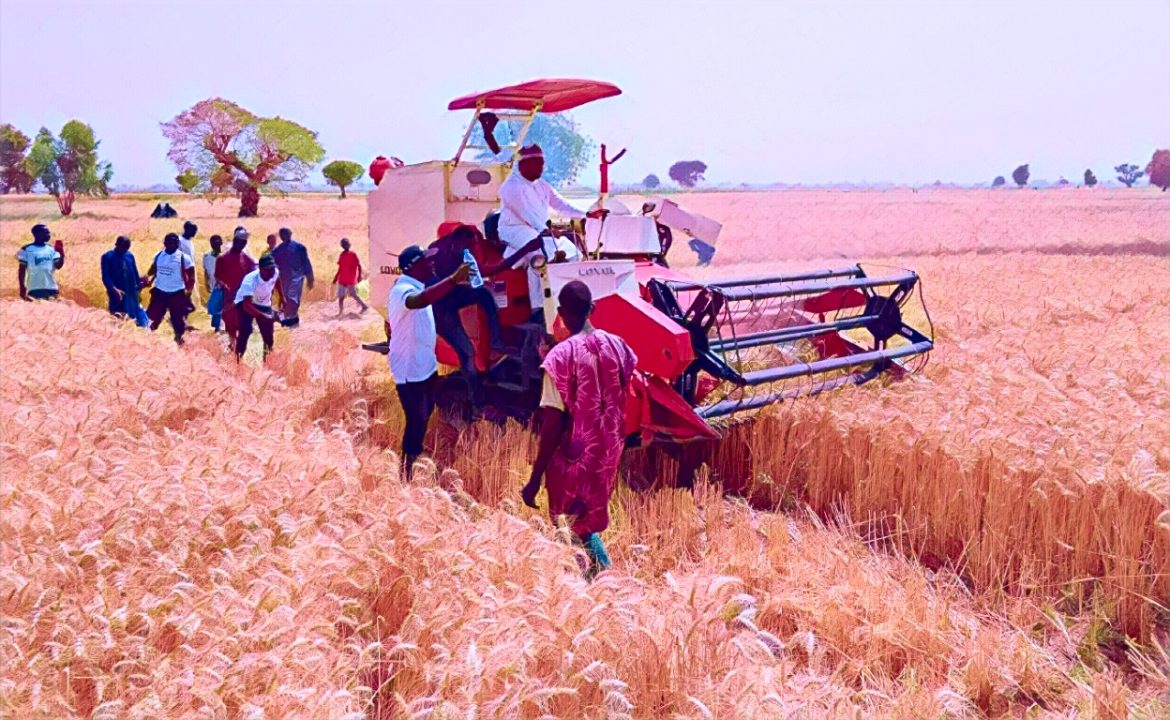KEY POINTS
- Nigeria aims to produce over 2 million tonnes of wheat.
- New CNG centers will reduce food transportation costs nationwide.
- Farmers will get timely support and guaranteed market access.
Nigeria is banking on wheat production to drive economic growth and reduce its dependence on imports.
The Minister of Agriculture and Food Security, Mohammad Abubakar, revealed that over 2 million tonnes of wheat will be produced across 19 northern states in 2025.
Speaking during an assessment of the National Agricultural Growth Scheme and Agro-Pocket Programme in Dadin Kowa, Gombe State, Abubakar said the initiative will reduce the wheat importation deficit and create new export opportunities.
The minister, represented by his Senior Special Adviser on Food Security, Adewoye Adeyemi, emphasized that the goal is to support the naira while promoting local production and consumption.
“We want to close the deficit gap, reduce importation, and increase local consumption. This will lower costs, boost local production, and strengthen the naira,” he said.
With projections of a 60 percent yield, the government expects the initiative to support over 2 million tonnes of wheat production in 2025.
This effort aligns with Nigeria’s broader economic agenda of reducing reliance on foreign imports and supporting local industries.
Farmers to receive support with timely inputs and guaranteed markets
One of the major takeaways from the minister’s statement was the assurance of timely distribution of farming inputs.
Abubakar acknowledged past delays caused by data collection from farmers, but he assured Nigerians that this issue had been addressed.
“We have learned many lessons regarding logistics, particularly delays caused by farmers needing to submit data. This won’t happen again,” he said, adding that the government would ensure the transition from dry-season to wet-season farming for year-round production.
To protect farmers from exploitation, the initiative has entered into agreements with off-taker companies that will purchase produce directly from farmers.
However, this ensures fair market access for wheat farmers and reduces the risk of exploitation.
According to Punch, Abubakar highlighted the government’s commitment to ensuring that value addition is not overlooked, noting that the new approach would strengthen the agricultural value chain and promote sustainable food security.
Compressed natural gas (CNG) centers to cut transportation costs
Recognizing the role of transportation costs in food inflation, Abubakar announced that Gombe State would soon host a new Compressed Natural Gas (CNG) center.
He explained that transportation was a major factor driving up food prices across Nigeria.
“The issue of food inflation, the biggest elephant, is transportation. That’s why I mentioned CNG,” Abubakar said.
Moreover, he revealed that there are currently 150 CNG centers across Nigeria, with plans to add 40 more by the end of the year.
By February 2025, a CNG center will be established in Gombe, which the minister said would reduce transportation costs and subsequently lower food prices.
Additionally, the minister believes the CNG initiative will have a lasting impact on Nigeria’s agricultural sector, especially in transporting food items from farms to markets.
With cheaper transport options, consumers are expected to see a drop in food prices, thereby easing the burden on households.


